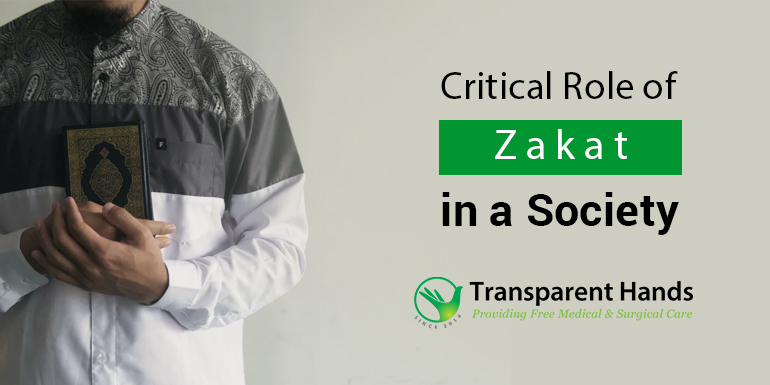The Critical Role of Zakat in a Society

In a world of interconnectedness, the concept of Zakat stands as a powerful force for positive change. With its roots deeply embedded in Islamic tradition, Zakat transcends mere financial contribution. It embodies a holistic approach to societal well-being, fostering spiritual growth, economic balance, and a sense of responsibility. In this exploration, we uncover the multifaceted role of Zakat and its significance in shaping a harmonious society.
Spiritual Satisfaction: Nurturing the Soul
At its core, Zakat serves as a profound spiritual practice. It embodies the act of giving selflessly, reminding individuals of their moral duty to share their blessings. This act of compassion fosters a sense of humility, gratitude, and empathy, nurturing the soul while cultivating a connection with a higher purpose.
Financial Assistance to the Needy
Zakat acts as a lifeline for those facing financial hardships. It offers a structured means of providing for the less fortunate, ensuring that basic needs such as food, shelter, and healthcare are met. By channeling resources to the vulnerable, Zakat alleviates their burden and contributes to a dignified life.
Circulation of Wealth: Stimulating Economic Activity
One of the remarkable aspects of Zakat lies in its role as an economic catalyst. By mandating the circulation of wealth from the affluent to the underserved, Zakat stimulates economic activity. It prevents the hoarding of resources and encourages investment, leading to a healthier economy and improved living conditions for all segments of society.
Zakat Decreases the Social Gap
Zakat serves as a bridge that narrows the gap between the privileged and the marginalized. It plays a pivotal role in social redistribution, redistributing resources and opportunities to create a more equitable society. This redistribution combats the concentration of wealth in a few hands, fostering unity and stability.
Feeling Motivated
Zakat is a catalyst for a cultural shift towards generosity and communal responsibility. Its presence in society inspires individuals to engage in acts of kindness beyond obligatory giving. This culture of empathy ripples through society, fostering a climate where helping others becomes second nature.
Conclusion
The role of Zakat in a society transcends financial transactions; it embodies a philosophy of empathy, solidarity, and shared responsibility. By nurturing spiritual growth, alleviating financial hardships, stimulating economic activity, bridging disparities, and inspiring a culture of generosity, Zakat serves as a cornerstone of a holistic and harmonious society. As individuals and communities embrace this concept, they contribute to a world where well-being is not merely a personal pursuit, but a collective endeavor that uplifts the entire human experience.










Leave Your Comments